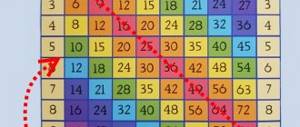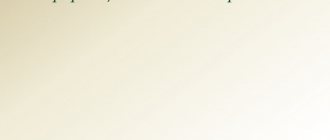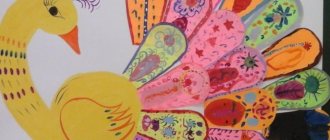Typical mistakes in choosing a profession
Each new generation of school graduates, not wanting to learn from the mistakes of those who went through this difficult path before them, steadily continues to step on the same rake when choosing an ideal profession for themselves. In this article we will present the most common mistakes that schoolchildren, applicants, and adults too make when trying to find the answer to the eternal questions “Who should I be?”, “What profession should I choose?” and “Where to study?”
As a rule, all of the following mistakes in choosing a profession do not depend on the age group, but there are also unique options that, for example, can only be made by school graduates, for example, going to study with friends or in defiance of parents. At the end of the article there are useful tips that are designed to help prevent most mistakes, representing a small road map with a description of step-by-step actions to achieve the goal.
If you want to start getting acquainted with the huge world of career guidance in general, we recommend that you first read our article “What is career guidance”, which briefly outlines all the basic concepts, basic mistakes in choosing a profession and the current situation with professional self-determination in Russia.
Ignorance of the world of professions
One of the most basic and common mistakes in choosing a profession, from which many others follow. Many schoolchildren, approaching graduation and the need to pass the unified state exams (USE and GIA), have little idea of what professions there are and what is happening in the labor market at the present time. The situation is aggravated by the need to urgently decide on the set of exams required for admission to universities and continuing education in a certain specialty.
For a more successful choice and initial acquaintance with professions that are interesting and suitable for you, we can recommend taking free psychological tests for career guidance and familiarizing yourself in detail with the rich world of offered specialties in our Catalog of Professions. For an even more accurate choice, be sure to use the services of qualified psychologists - professional consultants. Every city and almost every educational institution has appropriate services and specialists. State employment services can also help resolve this issue.
Focus on the prestige of the profession
A clear representative of mistakes when choosing a profession. Very often, when choosing a future career path, young people focus exclusively on the prestige of a particular profession. As a result, the labor market finds itself with a huge number of freshly graduated specialists who go to work like hard labor, dreaming of Friday and a career change. Typically, lawyers, financiers, marketers, bankers, show business and others fall into the category of prestigious professions. Undoubtedly, these are good professions, but they are not suitable for everyone and you should not choose based solely on prestige. At a minimum, there are also equally important concepts such as demand in the labor market, interest in the profession, physical and mental predispositions to a particular professional field.
Choice under peer pressure
Usually, the role of those around them are parents, who sincerely and with all their hearts want to place their beloved child in the best, in their opinion, field of activity. Unfortunately, very often the interests, talents, capabilities and aspirations of the child themselves are not considered, which leads to quarrels in families or the need to retrain and change professions later.
It’s even worse when parents try to realize their unrealized dreams of youth in their child. In such cases, the child needs to be able to defend his point of view while protecting his interests. It is difficult to study against your will, and even more difficult to work.
Follow in the footsteps of your idol
A common mistake in choosing a profession for schoolchildren, when falling in love or another passion for another person (like a teacher, actor, singer, etc.) can predetermine the desired profession or field of activity. However, in reality, interest in a person and interest in a profession correspond even less than nothing, and disappointment may occur during training.
If possible, then you should talk to your idol, ask him about the job and its requirements, ask for advice on whether it is worth choosing the same profession and where it is better to go to study. As a minimum, the program must learn as much as possible about the profession; perhaps it will not be as interesting as it seemed from afar. Of course, in this case, it is necessary to sensibly assess your capabilities, interests and aspirations, and it is also advisable to take several career guidance tests and talk with a competent professional psychologist.
Go to study “for company”
In cases where an interesting profession has not been found, and it is necessary to decide on exams and admission to a university urgently, school graduates choose options for the Unified State Exam to pass and universities to enroll in the company of school friends. Sometimes this option turns out to be not bad, since it is easier and more fun to study in an already established pleasant company, and then, perhaps, you will like the profession.
Alas, much more often it turns out completely differently: with interest and success, school friends absorbing new knowledge get ahead and make new acquaintances with whom they can discuss what they heard at the lecture, organize a joint project or conduct an experiment while a childhood friend, without with the appropriate talents, trails behind without the opportunity to participate in joint activities.
In essence, this situation is an avoidance of personal responsibility and shifting it onto others. But those around us absolutely cannot bear full responsibility for such a difficult choice for each person as choosing a profession. It turns out to be a lottery, in which you can get lucky, but much more often the ticket turns out to be without a win.
Such mistakes in choosing a profession are also made as a result of insufficient work of both school psychologists and teachers, who did not provide the required level of career guidance, and parents, who left the process of determining the student’s profession to its own devices and did not actively participate in it.
Desire to study only in a certain place
The desire to study at a particular college or university in itself is commendable, since it indicates interest and information collection. Another thing is that the educational institution you like may simply not have a suitable and interesting training program. The problem is somewhat mitigated by federal universities, which cover a wide range of professions in the humanities and technical fields, and also have an excellent material and technical base for training. But they cannot teach many narrow specialties that, as a rule, are taught by separate educational institutions: doctors, teachers, lawyers and many other specialties will be inaccessible with this approach.
Think about whether an old, beautiful building or the presence of a swimming pool is worth it for students to go to study for an uninteresting or far from desired specialty.
Outdated or incorrect occupational information
The world of professions does not stand still and is constantly changing. Some specialties are becoming a thing of the past, others are just emerging. With the development of science and the emergence of new methods, almost all professions available on the modern labor market are subject to constant change.
Therefore, in the process of definition, it is necessary to know well what a particular profession currently represents. Our Catalog of Professions can help with this, or you can independently find on the Internet the requirements for specialists, a description of the work process, or go to job fairs and open days at enterprises of interest. Thus, possible errors in choosing a profession due to ignorance of the current state of affairs will be minimized.
Considering only the visible side
Many people like to dream about a career as a famous actor, singer or presenter. Indeed, at first glance, representatives of such professions easily fill the halls and receive large fees, but few imagine the real state of affairs and the huge amount of behind-the-scenes work, be it endless rehearsals, traveling around the country or training to keep in shape. Let's not forget about forced publicity, which not everyone will like.
Before you finally choose your preferred field of activity, you need to study it in as much detail as possible from all sides.
Lack of desire to understand oneself
A fundamental mistake in choosing a profession is when, for one reason or another, a person refuses to understand himself and highlight his strengths and weaknesses. One of these reasons may be avoiding responsibility for the choice made and shifting it to others. Another reason may be general lack of self-confidence and severely low self-esteem. In any case, the result of the choice will most likely be unsatisfactory, made without regard to objective reality, and the work will not bring joy and satisfaction.
Help in choosing a profession in this case can come from people you know well, such as parents, other close relatives, friends, colleagues. But a much better choice would be to undergo psychological career guidance tests followed by extensive consultation with an experienced psychologist - career consultant, with whom you will be able to identify the most pronounced and important personality traits and select a profession based on them.
Incorrect assessment of your abilities
Incorrect assessment of one's strengths and weaknesses can lead to an erroneous choice of profession and, as a result, dissatisfaction with the work process and a decrease in the quality of life. If you are unsure of communicating with other people and prefer books to socializing, then it is unlikely that you should choose the profession of a journalist or teacher.
Errors in choosing a profession also occur when self-esteem is low or high, which prevents one from adequately identifying talents and abilities for a particular type of activity. As in other cases, career guidance tests online or in writing, as well as a mandatory conversation with a career consultant, will help solve the problem.
Attachment to your favorite school subject
There are many more professions than school subjects; in addition, many specialties cover many areas in their activities and it is very difficult to correlate them with a specific subject.
For example, even if the most favorite language at school was a foreign language, the choice of profession is not limited to just translator. There are many more options: from a guide and translator to a diplomat and intermediary between a domestic company and foreign enterprises.
Services like our Catalog of Professions, which contains the most popular professions in Russia with detailed descriptions and examples of activities, will help you decide on the desired type of activity and choose a specific specialty. Also, before making your final choice, you should study in detail the labor market and the vacancies offered, where certain requirements and education for each vacancy are indicated.
Ignorance of the prospects and requirements of the labor market
The right choice of profession, among other things, depends on the labor market of the region of residence and the prospects for its development. When choosing a professional path, it is definitely necessary to analyze newspapers and websites with vacancies, descriptions of professions and analytical materials about expected changes in the labor market in the next 5-10 years.
After the analysis, it may turn out that the chosen profession will lose its popularity or prestige after several years, and it will be difficult to find a job in the specialty. It is also worth considering the fact that very often non-prestigious workers and technical specialties are paid much better and are more in demand than another young economist without experience in an oversaturated labor market.
Thus, by analyzing the labor market of the region of residence, you can avoid the mistake of choosing a profession and make a better choice, taking into account your aspirations, desires and capabilities.
Ignoring one's own abilities and interests
Very often, when choosing a profession, people deliberately ignore the significance of their interests and abilities, highlighting exclusively the level of wages or the ephemeral prestige of the profession. However, few are able to reach the top with such a choice - it is simply unpleasant and difficult to invest in work that is unpleasant and causes rejection. And in the absence of a noticeable outlet in his free time, such a person will be constantly unhappy, which will lead to a decrease in the quality of life.
A simple solution to such a mistake in choosing a profession would be to choose a specialty that you like and will be interested in doing for most of your life.
Listen to people who are incompetent in choosing a profession
According to old memory and good tradition, many people are ready to give advice on almost any matter. But in such a matter as professional self-determination, listening to the advice of incompetent people, even close and well acquaintances, means only one thing - deliberately harming yourself. Not a single person without dealing with this issue professionally, of course, will be able to give competent advice, and the mistakes made in choosing a profession in his youth will affect him for a long time.
You can and should listen to opinions about the profession in which the person advising you is an expert. In no case should you listen to idle speculation that is not confirmed by experience, knowledge, and research. Contact trustworthy professionals who have been doing this for years!
Continue family traditions against your will
It is a very good and right thing when a child follows in the footsteps of his parents. He has a wealth of experience, best practices and first-hand secrets of the profession at his disposal, and the support and advice of close and understanding people in his first steps is absolutely invaluable, useful and timely. It is from such families that talented doctors, engineers, actors, and scientists come out.
But there may also be a significant fly in the ointment, which will negate all the advantages of this approach. This spoon will be the child’s desire to follow in the footsteps of his parents and continue the family dynasty. Someone will break under pressure and accept the imposed rules of the game, someone will fight for the right to go their own way. The main thing is that the family does not perceive such behavior as betrayal and does not begin to put a spoke in the wheels on the path to the dream profession. Such actions will only lead to conflicts and possible breakdown of relationships.
Treat the profession as the only possible one
Any field of activity is subject to constant change, and as experience, qualifications and career advancement increase, occupations with areas of responsibility will also change. Naturally, the most successful person will be the one who has passed the initial stages perfectly.
In addition to the profession itself, familiarize yourself with career prospects and the state of the labor market in advance. Be prepared for constant professional development, mastering related and similar professions, or even a radical change in the direction of your activity. All this will turn you into a valuable specialist who will always be in demand and successful.
Thus, you should not think that the initial choice of profession is the only chance that will determine your entire future fate. At any time you can retrain for another profession or a related specialty, and previously made mistakes in choosing a profession will help you make the right decision.
Underestimation of one's physical characteristics and capabilities
In some professions, it is necessary to assess your physical capabilities and characteristics as sensibly as possible. Military service, special forces, the Ministry of Emergency Situations, and law enforcement service require excellent physical preparation. Aviation requires perfect vision and quick thinking. Creative professions require taste and appropriate skills.
Some professions can be mastered with the right attitude and constant efforts towards the intended goal, while others may be closed forever. In this case, you can master similar or relatively related professions. For example, if you didn’t succeed in becoming a civil aviation pilot, then you can try to become an aircraft maintenance mechanic, a dispatcher, or even a steward.
An incorrect assessment of your physical capabilities may lead to the need to subsequently obtain another specialty, which will result in loss of time and finances.
Late choice or force majeure
“Thanks to” the deplorable situation with school career guidance in our country, very often graduates find themselves in a situation where they urgently need to decide on the desired profession, and, as a result, the set of exams to take. This situation is fraught with many mistakes in choosing a profession, which were written about just above, and schoolchildren begin to choose a profession at random, for company with friends, or based on the easiest school subjects to master.
There is no clear solution for those who have already found themselves in such a situation. You can urgently undergo career guidance tests and conversations with career consultants, on the basis of which you can choose a profession and estimate the possibility of passing the Unified State Exam required for admission. Another option is a gap year, which will be spent studying the labor market, making decisions and quality preparation for the chosen specialty. The loss of time is obvious, but it can compensate for other time losses from retraining in the future.
Focus only on salary
A bad practice when choosing a profession is to focus only on the size of your future salary. Firstly, the salary indicated in the vacancies corresponds to specialists with experience and still needs to grow to it. Secondly, studying for a specialty you don’t like or is not easy to master will be difficult mentally and physically. Thirdly, working solely for money, without receiving absolutely no satisfaction from work, leads to rapid emotional burnout with unpredictable consequences.
Choosing a profession out of spite or in spite of someone
Very often, young people choose a profession in defiance of statements from their parents or other significant people, such as “It’s hard for you to figure out what kind of programmer you are?”, “You can’t put two words together, but you want to go into journalism!”, “You’ll never become a journalist in life!” a good specialist, you don’t know how to do anything!” Sometimes such statements are true, sometimes they are said in a fit of emotion to hurt a person.
A choice made with the goal of proving to others that they were wrong is a bad choice, since working in a job that is unloved or too difficult will not be the people who made unpleasant comments.
Study only for the sake of a higher education certificate
Among all the existing mistakes in choosing a profession, this one applies mainly to Russia. We have a situation in which having a higher education is a necessary requirement for many vacancies, even if objectively it is not necessary. Sometimes it comes to absurd situations when a higher education diploma is required for cleaning service employees or other professions that require exclusively applied experience and education.
Another aggravating factor is the threat of military service for guys, the only chance to delay it is to enter a higher educational institution and, by hook or by crook, study there until the age of 27. As a result, the output is well-trained specialists with an emphasis on scientific activities and existing dissertations, but who do not see themselves and do not plan to work in this field.
Useful tips for avoiding the mistake of choosing a profession
Summarizing all of the above typical mistakes in choosing a profession, we can say that choosing a profession is a very difficult and responsible step, which should be approached as responsibly and seriously as possible.
You can derive a few simple rules and tips that will help you avoid most mistakes:
- Understand yourself: your abilities, talents, interests, physical capabilities.
- Determine your strengths and weaknesses in relation to future work.
- Take career guidance tests online or in paper form and receive detailed advice from an experienced professional psychologist.
- Get acquainted with the diverse world of professions, paying special attention to those that fit the results of the first three tips.
- To confirm the correctness of your choice, meet with specialists from the chosen fields and learn the subtleties and features of the profession that are invisible at first glance.
- Based on the above, choose the most interesting educational institution for higher education and find out the required set of Unified State Examinations for admission.
- Prepare well in your chosen subjects and pass the unified state exams for the best possible result.
- Enter the university of your choice and, after graduating, become an excellent specialist who enjoys work and moves up the career ladder.
We hope that all the information presented above was useful to you and that you will not make mistakes in choosing a profession.







